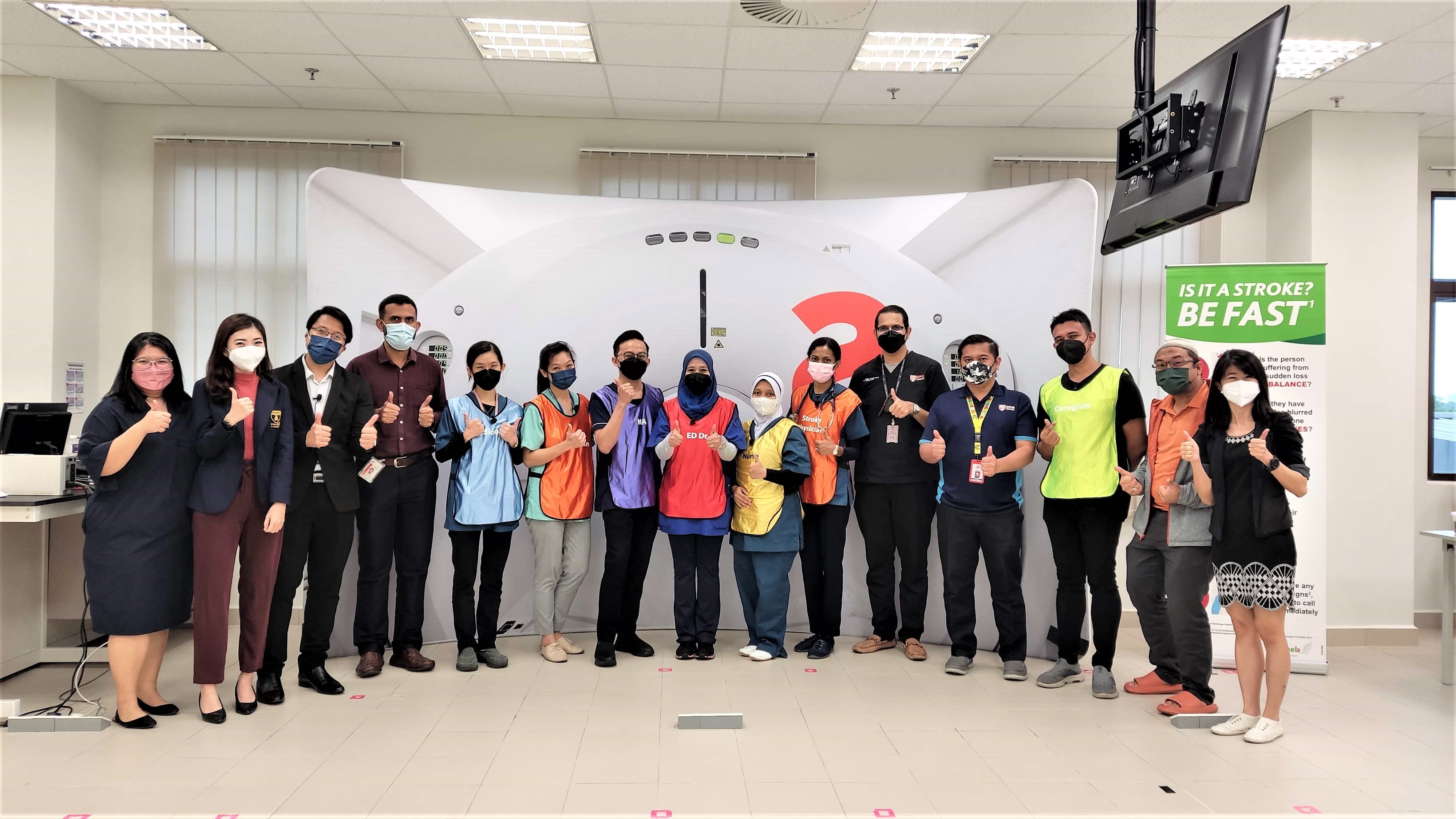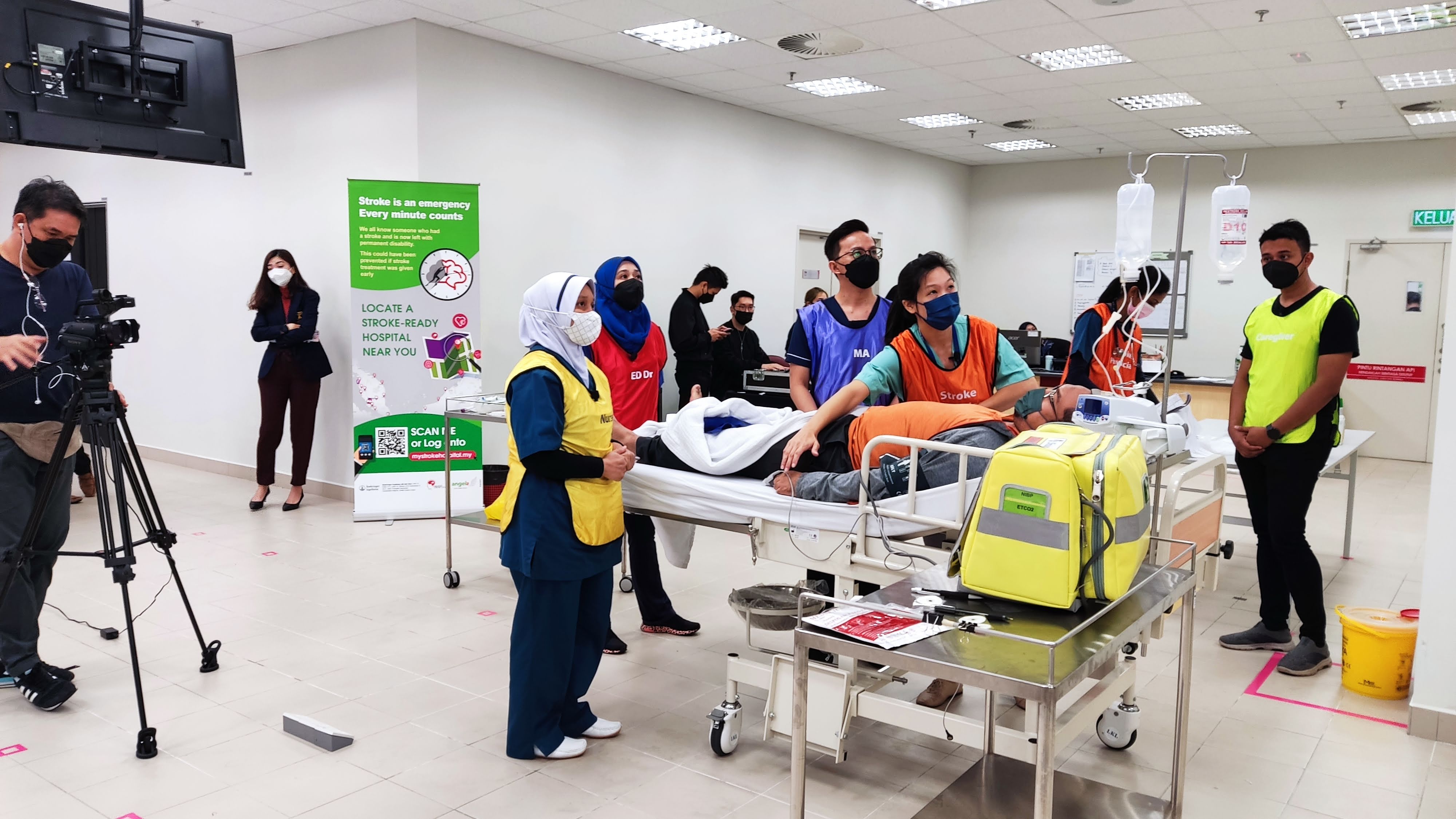
AKCJE rzadko ustalają dokumentację podczas szkolenia. Wynika to z faktu, że ludzie potrzebują konkurencji do testowania ograniczeń naszych możliwości. Konkurencja zwiększa wysiłek, poprawia wydajność i pobudza kreatywność. Przypomina on członkom tego samego zespołu, że wszyscy pracują nad tym samym celem i motywują ich do wspólnego osiągania sukcesów.
Dotyczy to również zespołów udar, tak jak w przypadku zespołów sportowych, Zespół Angels w Malezji. W marcu 2022 roku zaprosili trzy szpitale do walki z tym problemem w ramach wyzwania zespołu symulacyjnego, który po raz pierwszy skorzystałby z korzyści wynikających z przyjaznej konkurencji w walce o poprawę leczenie udaru w Malezji.
Cele: mówi konsultant Angels i kierownik krajowego programu leczenie udaru, Elva Phan, miały zidentyfikować luki w ścieżce szpitalnej i stworzyć scenariusz, w którym zespoły mogłyby się od siebie uczyć. Oczekiwali, że konkurencja doprowadzi do wyższych poziomów wydajności, wzmocni relacje w zespołach i zainicjuje ducha zespołu.
Inauguracyjne wyzwanie dla zespołu symulacyjnego było trzystronnym konkursem między kolegami, który odbył się w centrum symulacja Hospital Pengajar UPM (HPUPM) w Serdang, około 30 minut na południe od Kuala Lumpur. W mieszance było gospodarzem HPUPM, który w 2020 r. stał się pierwszym centrum leczenia udarów w Malezji o dużej głośności z dedykowanym oddziałem ratunkowy leczenia udar i w 2021 r. zdobył pierwszą nagroda WSO Angels Diamond. Byli oni dwukrotnie nagradzani nagroda zwycięzcą Szpitala Tuanka Ja’afar, którego zespół udarowy nawiązał światowej klasy medianę czas oczekiwania między przybyciem do szpitala a podaniem leku, wynoszącą 25 minut przy pandemii, a Szpitalem Sultanah Zahirah z miasta nadmorskiego Kuala Terengganu.

Konkurs rozpoczął się o godzinie 8.30 w piątek 4 marca, kiedy to zespoły zostały poinstruowane przez moderatora, dr Abdul Hanifa Khana i kierowali przez głównego osądu 2022 Spirit of Excellence zwycięzcę, dr Wan Asyrafa Wan Zaidi, neurolog ze Szpitala Canselor Tuanku MuhrizM w Wielkiej Brytanii. Wszyscy musieli poradzić sobie z tym samym przypadkiem podejrzewanego udar mózgu, w którym uczestniczył 41-letni mężczyzna z prawym odchyleniem gałek ocznych i łagodna postać slur obserwowana w ciągu ostatnich dwóch godzin. Ich wyniki zostaną zapisane i ocenione przez czterech sędziów, a wyniki zostaną ogłoszone i omówione podczas dzisiejszego warsztatu multidyscyplinarnego Angels.
Zespoły mogą zdobyć 25% w każdym z następujących celów: podejście do ścieżki i ocena wg skali Skala oceny udaru mózgu NIH, Interpretacja wyniku TK, podejmowanie decyzji i czas oczekiwania między przybyciem do szpitala a podaniem leku, z premią 10% przyznawaną za pracę zespołową i ogólną doskonałość. Kryteria oceny odzwierciedlały kluczowe priorytetowe działania w celu optymalnego zarządzania szlakiem udar. Na przykład w ocenie czas oczekiwania między przybyciem do szpitala a podaniem leku zespoły mogą spodziewać się utraty punktów, jeśli zdecydują się poczekać na więcej badań obrazowych po wykluczeniu krwawienia i okluzji dużego naczynia, lub jeśli przeniosły pacjent na szpitalny oddział ratunkowy zamiast rozpocząć leczenie podczas TK.
W przypadku konkurencyjnych zespołów popołudnie nie mogło przyjść wystarczająco szybko. Wtedy zarówno uczestnicy warsztatów interdyscyplinarnych, jak i online będą mieli możliwość obejrzenia filmów symulacja, a po komentarzach dr Wan Asyraf Wan Zaidi, dr Abdul Hanif Khan ogłosi wyniki.
Oklaska wypełniła audytorium HPUPM jako Szpital Tuanku Ja’afar został wybrany zwycięzcą pierwszego Wyzwania zespołu symulacyjnego w Malezji. Dokonali również najlepszego czasu oczekiwania między przybyciem a rozpoczęciem zabiegu w ciągu 15 minut i 56 sekund, wykonując test HPUPM przez 17 minut i 11 sekund, a szpital w Sultanah Nur Zahirah podniósł tył z imponującą 21 minutą i 48 sekundami.
Zwycięstwo miało jednak mniejsze znaczenie niż wyciągnięcie wniosków przez każdy zespół z rywali i wróciłoby do swoich szpitali. Uczestnicy warsztatów również mieli przyjemność usiąść z przodu podczas sesji wymiany najlepszych praktyk.
Elva podaje, że w ciągu sześciu miesięcy po wystąpieniu zdarzenia mediana czasu oczekiwania między przybyciem a rozpoczęciem zabiegu dla uczestniczących w badaniu ośrodków leczenia udar spadła z 64 do 56 minut, a inne szpitale klasterowe zasygnalizowały zainteresowanie replikacją konkurencji w swoich ośrodkach.
Malezyjska Rada Udarowa, której prezydent profesor Zastępca Profesora Hoo Fan Kee przeprowadził otwarcie warsztatu, przyznał również potencjał do dużego wyzwania ze strony zespołu w zakresie poprawy wydajności zespół udarowy.
Poprzez podniesienie jakości leczenie udar we wszystkich szpitalach uczestniczących w badaniu jest to konkurencja, w której nie ma żadnych strat, a pacjenci i ich bliscy są prawdziwymi zwycięzcami.


